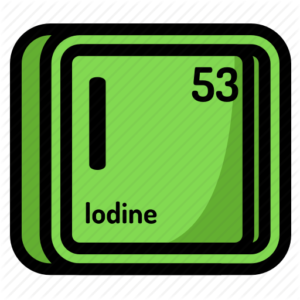
Science says eating 100% plant-based can be the most healthful diet there is – but of course it has to be done right. Coke and vegan marshmallows do not a healthy vegan make.
There are many tantalising, colourful new vegan products out there now, and ‘dirty’ vegan hipster joints are popping up in East London (what seems like) daily. And this is all good, and harmless to indulge in once in a while. But a new vegan could be forgiven for thinking that this is the stuff vegans eat ALL the time. And the worst thing in the world would be for a new vegan to partake of this kind of food only, and end up feeling so bad that they mistake the fact they are feeling gross to be due to a lack of meat. Or eggs. Or salmon.
Another reason some vegans turn back to meat is because they’ve been influenced by Youtube videos where (slightly crazy imo) people eat 50 mangoes for breakfast, 20 bananas for lunch etc and end up believing that buckets of fruit are the answer to all their health and wellness problems. When they don’t get the desired health outcome they expected from eating all the fruit all the time, they blame it on not eating animal products.
Firstly, none of the problems I’ve ever heard these ex-vegans complain of are because of a lack of animal products.
The one and only time you may NEED to eat meat is if there is no plant-food around anywhere; no chance of you coming across any in the next few days; you are already malnourished and semi-dead of starvation; and an unsuspecting animal walks by. In this scenario, go for it. Otherwise, there is no medical need to eat animal products.
Being a healthy vegan isn’t a mystery, but it’s not about guzzling a fuck-ton of fruit, or buying all the pretty new vegan products. And it’s a good idea to get a blood test done with your GP after a couple of months to check your levels of vitamins and minerals to see how you are going. Then, should you be deficient in any, you may well be able to make up the shortfall through diet.
I wonder who could help you do that?????
*coughs loudly*
**waves manically**
Oh……me?
*blushes demurely*
Well, since you asked, here is my nutritional therapy page 😀
But for right now – here are 11 helpful tips that should keep you on the straight and narrow health-wise:
1. Whole Foods. I was going to say ‘if its brown, gobble it down’ but that sounded a little…weird 🙂 What I mean is, always choose the whole versions of grains. So – brown or black rice; wholewheat products over white wheat products (whole wheat pasta, whole wheat bread, whole wheat couscous etc); and try using more natural sugars over white sugar – agave and maple syrup are a better choice than white sugar and they don’t spike your blood at the same rate.
When you DO buy pre-made products, try and ensure they have minimal ingedients, and that you know what all the ingredients are – no unpronouncable chemical rubbish needed!
2. Watch your oil consumption. It’s very easy to overdo the oil, especially with all the tempting new junk food vegan places around. Even the better plant oils (olive, coconut etc) count as processed foods. Unless you have chronic disease it’s fine to include a little, but restaurant food very often contains a LOT.
Eat at home as much as possible and take your own lunch into work. Eating out occasionally is fine, it’s when you do it constantly that the excess oil can be harmful to digestion, weight maintenance and health in general. If you have to eat out a lot for whatever reason, try and space it out so you’re not doing it on consecutive nights, and eat oil-free meals the days in between.
3. Beans, grains, greens baby! It’s always gonna be your beans and whole grains that will give you the energy and fibre you need to maintain good basic health, with root veg like sweet and white potatoes making a regular appearance too for the same benefits. The greens are a great source of calcium. When you make a meal, try and incude ‘a bean, a green and a grain’ – or a root veg in place of the grain. So that can incude fabulous chilis, curries, pasta dishes, couscous, hearty salads – pretty much most dishes can contain these elements. I know it doesn’t sound as sexy as ‘Sloppy Joes’ or ‘Dirty mac n’ cheeze,’ but it’s not sexy having digestive issues from too much oil either, so… 🙂
4. Eat the rainbow. The colour of each fruit and vegetable represent different nutrients, so try and eat a variety of coloured fruit and veg throughout your week. For example; red – tomatoes, red peppers, red apples; orange -carrots, sweet potatoes, canteloupe; green – um..greens :), kiwi, okra; purple – beetroot; yellow – bananas, yellow peppers.
5. Love your kitchen. Dudes, there’s no easy way to say this and not sound like an authoritarian school head teacher. But you HAVE TO PRIORITISE SPENDING TIME IN THE KITCHEN. You want the health? Good. I want that for you too. Now GET YOUR ASS IN THE KITCH.
If there was a professional goal you desperately wanted, I don’t doubt you would do whatever it took to achieve that. I never understand why people don’t prioritise their health in the same way when health is so basic to happiness and wellbeing. Health, imo, should be a starting point, and everything else comes out of that. If you feel good, you’re gonna be so much more productive – and fun! 🙂
If you make as many of your own meals as possible, YOU can control the oil that goes into your food, and make sure there is no pesky sugar or white flour added. God knows there are plenty of vegan cookbooks and recipe websites out there. Pick one, get a podcast up on the laptop to help you enjoy your kitchen time, and get cooking.
6. Pamper your guts. We now know that gut-health is key to overall health. Your guts contain 70-80 % of your immune system, and bad gut-health can be responsible for all sorts of issues such as leaky gut, IBS, and fibromyalgia, chronic fatigue, multiple sclerosis, and mental illnesses such as depression, bi-polar and even schizophrenia. Sugars and white, refined starches feed bad gut bacteria, so yet another reason to avoid or at least minimise consumption of them.
Eat a portion of fermented foods every day. Pick from sauerkraut, kimchi, soy/coconut yoghurt, miso, tempeh, or a drink like kombucha, vegan kefir, water with apple cider vinegar. This will help re-establish the good bacteria your gut needs to thrive. Me? I make my own kimchi, because I’m a hippie that knits her own sandals 😀 But seriously, it’s yummy. My recipe here.
If you have any of the health issues mentioned at the top of this paragraph, think about taking non-dairy probiotics.
7. Face the flax. Try and include 2 x tbspns ground flax seeds in your diet 6 days a week. There are SO many reasons why this is a good idea for overall health. Firstly; they provide masses of fibre. Secondly; they promote great gut health. Thirdly; they are thought to be cancer-protective. Fourthly; they are thought to soak up any heavy metals lingering in our bodies and help them to..er…exit the body 🙂 Fifthly; they will help keep estrogen levels stable, again, by helping your body to excrete any excess. Sixthly; they are a great source of omega 3.
Sprinkle it on oatmeal, soups, stews, salads.
8. Vitamin B12. Supplement with this. No backtalk. Do it.
9. Hydrate! Well yeah, it’s obvious I know, but you’d be surprised how many people still don’t. Hydrate even more if you consume alcohol and/or coffee. Water and single herb teas are the ONLY liquids that count as water.
10. Sleep well. Another obvious one, and not really my remit, but I DO know it’s best to leave 3 hours between your last meal and going to bed. You wanna be resting in bed, not digesting.
11. Move it! Move it! Move it! Exercise is key. Pick whatever works for you and be CONSISTENT. If nothing more, then get out and walk briskly for half an hour every day – you get even more points if some of the walk has an upwards gradient.

